
Inside mouth of Rottweiler 10 Month Olds, Yawning, Best Dogs, Cute Dogs, Mouth, Rottweilers
A growth in the mouth of your dog is defined as either malignant (cancerous) or benign (noncancerous). Diagnostic tests are the most accurate way to determine the origin of the growth, and to decide on the best plan of action. It is very important to bring your dog to the veterinarian for regular check-ups in order to assure quality and timely.

This was in my dogs mouth and rotted his teeth YouTube
Canine stomatitis involves inflammation of the mucous membranes of the mouth. Signs include severe gum inflammation, receding gums in several sites, and large sores on the mouth surface near the surfaces of large teeth.
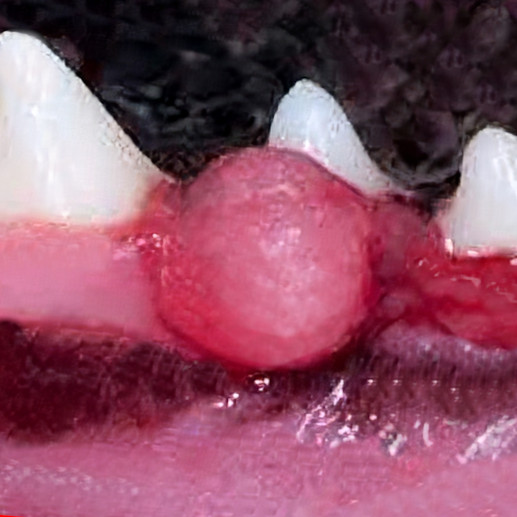
Mouth Sores in Dogs Pictures & Veterinarian Advice
Dogs with heavily pigmented skin and mouths have an increased predisposition for developing oral melanoma, explains Robyn Elmslie, a veterinarian specializing in oncology practicing for Veterinary Cancer Specialists in Englewood, Colorado. See your vet if you notice any dark, pigmented areas inside your dog's mouth that look raised instead of flat.
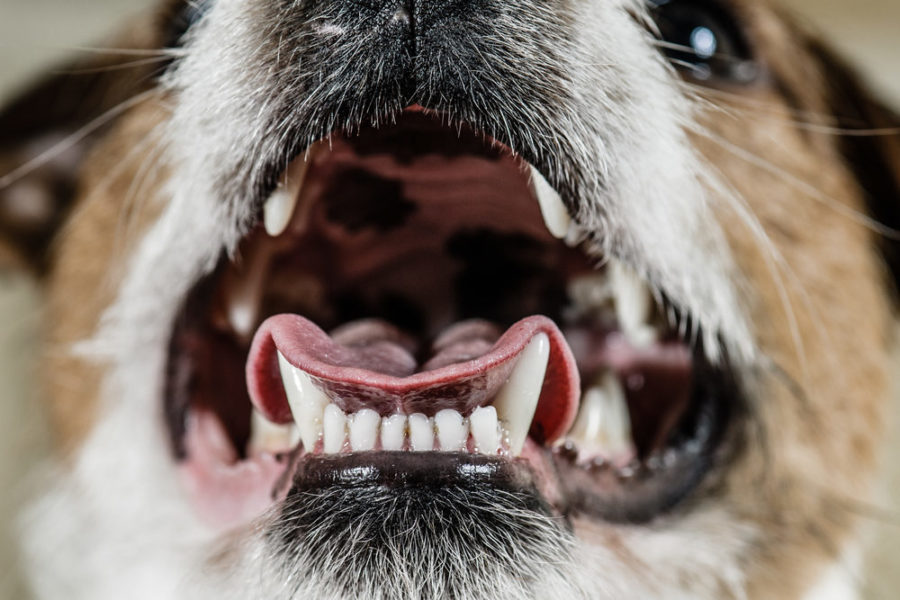
8 Steps to Clean Teeth and Fresh Breath in Dogs Paws & Claws Animal Hospital
The mouth is located in the lower, front part of the face and is considered the entire area between the upper and lower jaws. The mouth includes the space just outside the teeth and gums, and just inside the lips and cheeks. The main part of the mouth, or oral cavity proper, is bound on the top by the hard palate and the soft palate.

Closeup of Inside of Dog Mouth with Sharp Pink Tongue Highlighted Canine Teeth the Dog is
Yes, mouth cancer in dogs is painful. Dogs with oral tumors show obvious signs of oral pain - reluctance to eat, yelping when chewing, trouble swallowing, excess drooling. In general. dogs are good at hiding pain. However, the healthy appetite combined with inability to eat is a telltale sign.

Found this lump in my dogs mouth. vets are closed today. Could it be a tumor? r/AskVet
Visible mass in the mouth. Enlarged lymph nodes in the neck (occasionally) Swollen or deformed areas on the face. Causes. In most cases, there is no identifiable cause for cancer of the mouth in dogs. Diagnosis. As part of a thorough physical examination, your veterinarian will look inside your dog's mouth for tumors or other abnormalities.
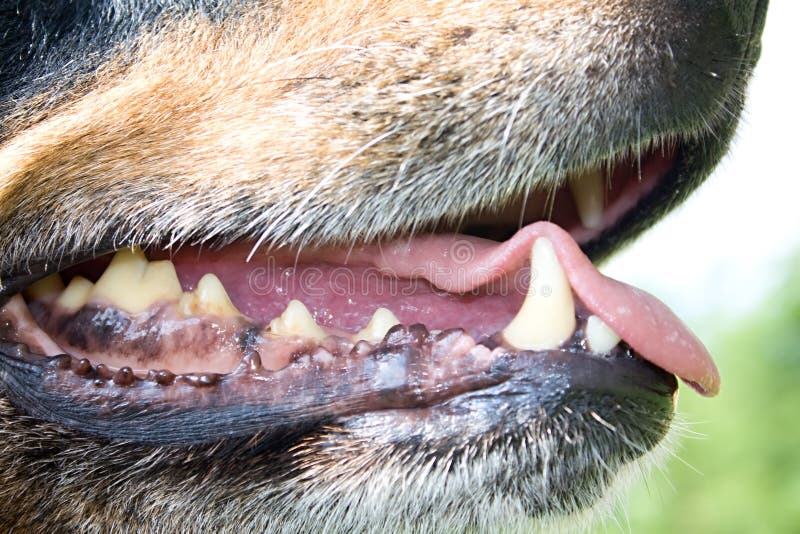
How Do You Look Inside A Dogs Mouth
Causes of Inflammation of the Mouth in Dogs. If your dog is experiencing inflammation in his mouth, it might be caused by a dental issue. Other causes of inflammation in a dog's mouth include: Bacterial infection. Viruses. Diabetes. Thyroid or immune disorder. Cancer. Toxicosis.

mouth (dog) Dog anatomy, Vet medicine, Animal medicine
Despite scientific and medical facts about dogs dental hygiene, some dog parents continue to believe a dog's mouth is cleaner than a human's. As much as we would love to believe this, it is just not true. This myth originated because dogs usually lick their wounds without risk of infection. However, this is due to their strong immune system.

Dog Anatomy Mouth Anatomical Charts & Posters
Oct 13, 2023 Summary: In this blog, we learn all about the dog mouth anatomy. We'll discover what healthy dog gums should look like, the dog teeth anatomy, and how to keep your dog's mouth clean… Dog Mouth Anatomy Like our human mouths, the dog mouth contains a tongue, teeth, and gums, and the mouth is surrounded by cheeks and lips.

A Toothsome Topic Do Dogs Get Cavities? Beverly Hills Veterinary Associates Beverly Hills
What Are Mouth Ulcers in Dogs? Oral ulcers are disruptions or breaks in the surface of the skin or mucous membrane of the mouth. An ulcer is a more severe version of erosion and excoriation, which are also types of epithelial defects. Dogs can have a mouth ulcer that affects the skin of the lips outside the mouth or the mucosa inside the oral.

Things that get stuck in a dog's mouth! YouTube
One of the most common mouth-related conditions that veterinarians generally see in dogs is injury from foreign objects (like sticks, pieces of mulch or rawhide) embedded in a dog's mouth, says Dr. Amy Stone, Clinical Assistant Professor at the University of Florida's College of Veterinary Medicine in Gainsville, Fla.
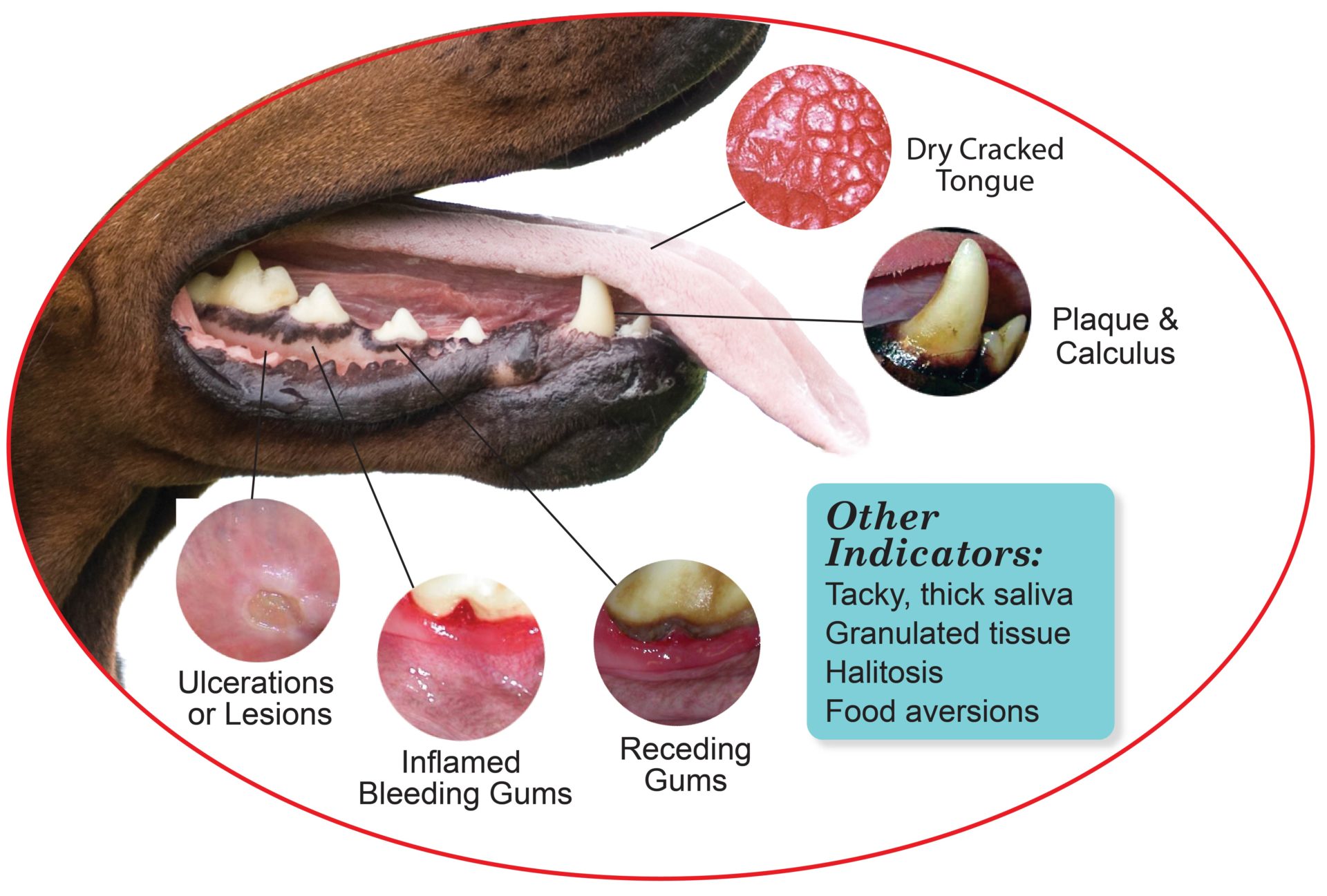
Bad breath Thick, tacky saliva Dry cracked tongue Plaque & calculus accumulation Ulceration or
25/04/2023 04/02/2022 by Sonnet Poddar The dog mouth anatomy includes the lip, oral cavity, and associated structures. But, the term mouth includes only the opening between the lips into the vestibule of the oral cavity.
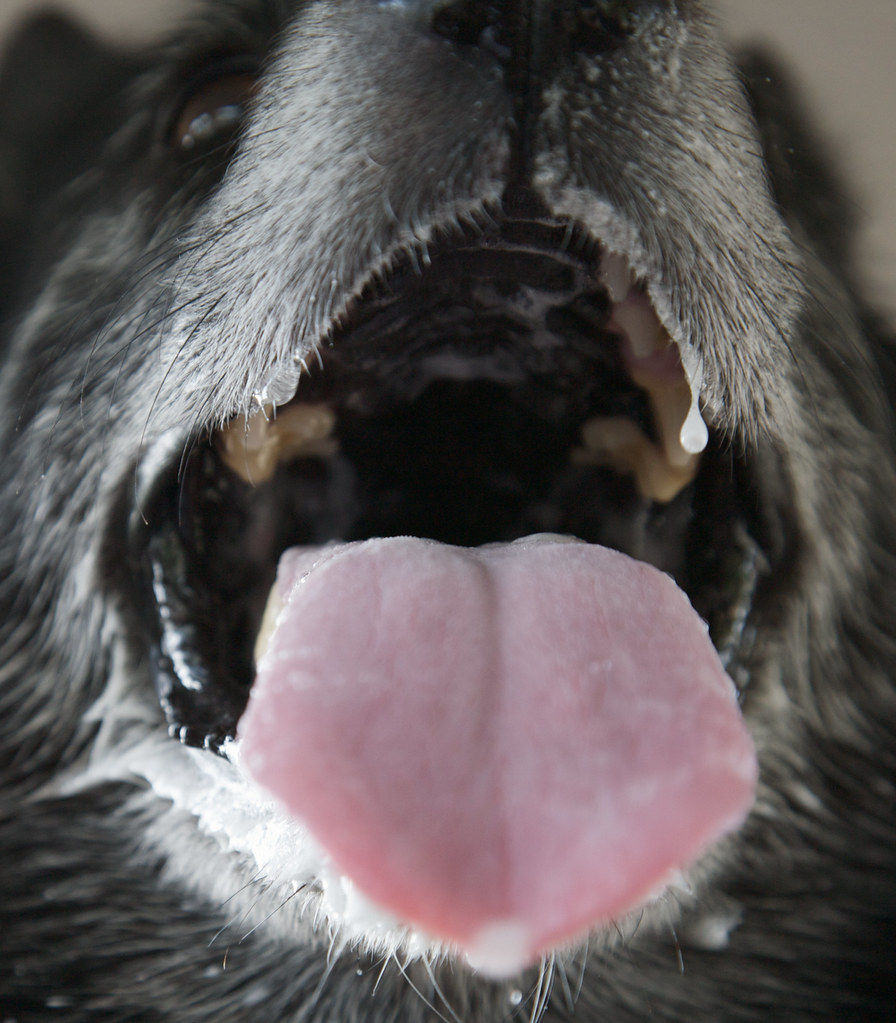
A Dog's Mouth Ever wonder what the inside view of a dog's … Flickr
Some of the most common mouth problems in dogs include gingivitis, oral trauma, an embedded foreign body, tumors, and oral warts (papillomatosis) Daily teeth brushing and regular at-home and veterinary oral exams are the best way to keep on top of any changes or problems developing in your pet's mouth. There are a number of things that can go.
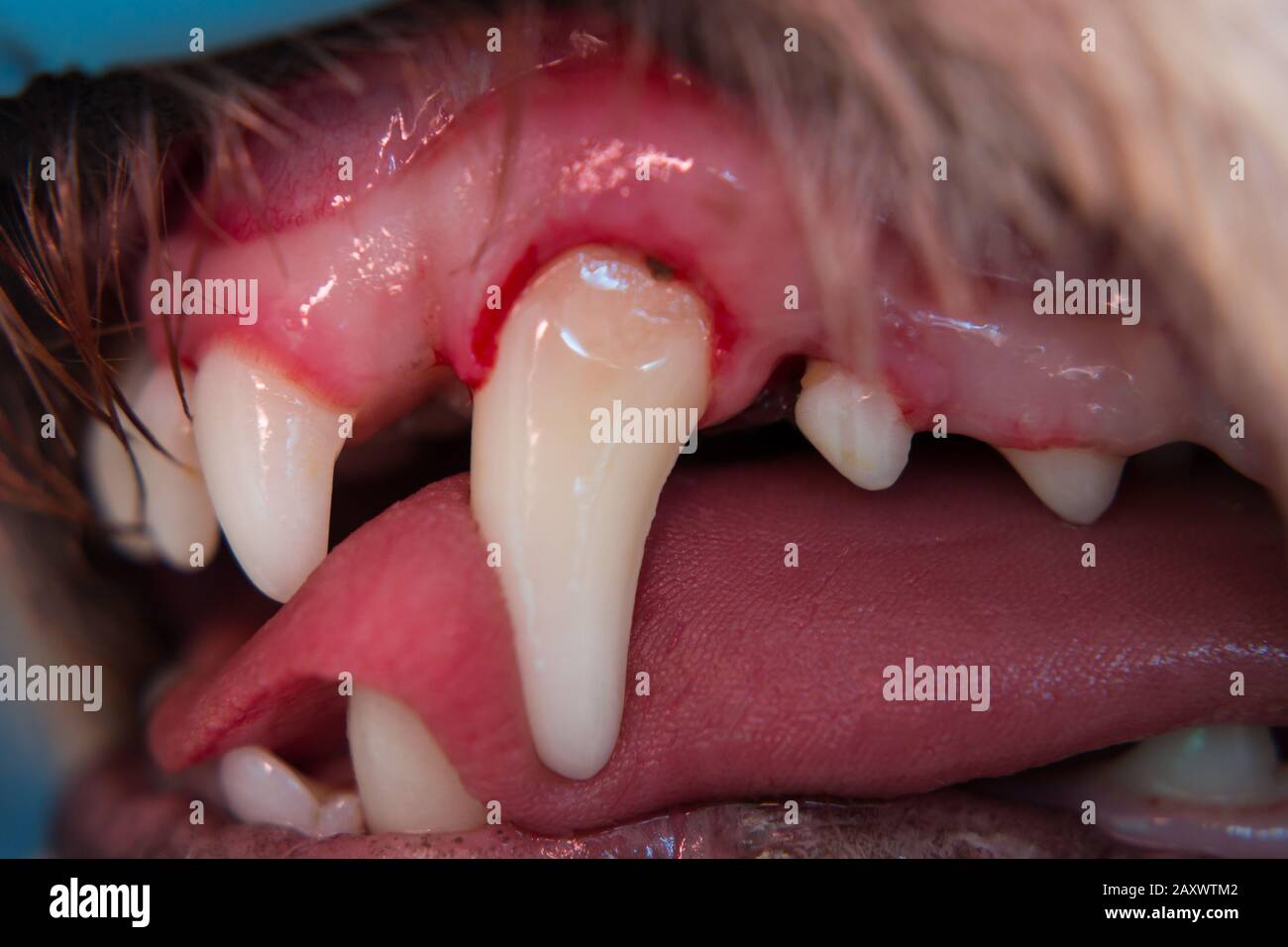
closeup photo of a dog mouth with periodontitis Stock Photo Alamy
Have your vet examine your dog's mouth at least once per year, and always bring your dog to the vet if you suspect anything is wrong, such as pain, swelling, a bad odor, blood, discharge, or if you see a mass or growth in or around your dog's mouth. Certain breeds may have malocclusion, the most common being an overbite or underbite.

Understanding the Secret Language of Dogs Analyzing a dog's mouth Acme Canine
The symptoms of dog warts can vary depending on where the warts are located. They can range from small, raised bumps on the dog's skin to large cauliflower-like lesions with sizes up to 3cm. With oral papillomatosis, large clusters of dog warts are found in and around the oral cavity. Oral papillomatosis can cause discomfort, hypersalivation.

What does this growth in my dog’s mouth look like? PetCoach
Keep a close eye on your dog's mouth, in case there are any less obvious warts on the inside of it that are causing problems.. Warty growths around the mouth of a young dog are usually caused by an oral papillomavirus, and the lumps regress by themselves again. A veterinarian will be able to advise you further so it is best to get your dog.